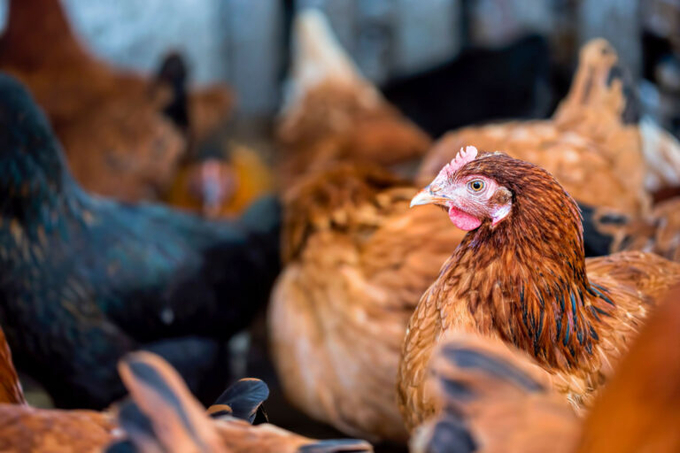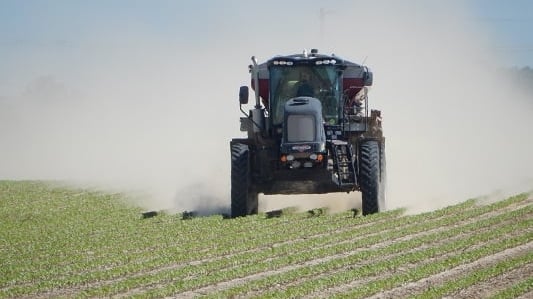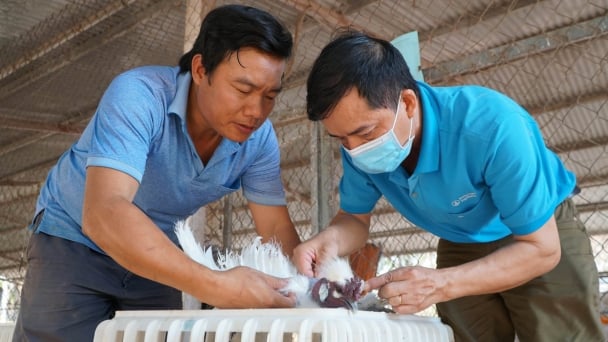May 16, 2025 | 09:49 GMT +7
May 16, 2025 | 09:49 GMT +7
Hotline: 0913.378.918
May 16, 2025 | 09:49 GMT +7
Hotline: 0913.378.918

The British Hen Welfare Trust has been encouraging consumers to influence hen welfare with their purses by opting for the best eggs they could afford in the supermarket, as “change happens best from the ground up”. Photo: Canva.
In a letter to environment secretary Steve Reed, food companies Waitrose, the Co-op, Marks and Spencer, Morrisons, Greggs and Mitchells & Butler said they had all eliminated caged egg-laying hens or committed to do so by the end of 2025, but were concerned that there would still be 4 million UK laying hens. This, they argued in the letter, would create an unlevel playing field in the industry.
Time is indeed running out for UK retailers who pledged to be cage-free by 2025, according to a poultry welfare charity that has been campaigning on the issue for nearly 2 decades.
Since 2005, the British Hen Welfare Trust has been encouraging consumers to influence hen welfare with their purses by opting for the best eggs they could afford in the supermarket, as “change happens best from the ground up”.
The campaign, with support from other welfare groups, led retailers such as Tesco, Aldi and Lidl in 2016 to vow to stop selling eggs laid by caged hens by 2025. The pledge is entirely voluntary and there are no boundaries in place on exact timeframes and whether this means both sell eggs and eggs for ingredients.
The British Hen Welfare Trust has been looking at the latest situation and has determine the following:
Even if the retailers in question do meet their commitments, the British Hen Welfare Trust questions what it actually means for hens. It says barn eggs will be increasingly offered on retail shelves. Latest statistics on the number of barn eggs produced in the UK show a doubling between 2022 and 2023.
Defra statistics show the total market for 2023 was made up of:
The British Hen Welfare Trust said that while it was pleased to see the production of caged eggs falling significantly in the UK over the past decade, it wanted to see all hens kept in higher welfare free-range organic systems.
Cage bans are already in place in Luxembourg, Switzerland and Austria and bans are set to come into force in Germany (2026), Czechia (2027) and Slovakia (2030).
(Poultryworld)

(VAN) Vietnam's draft amendment to Decree No. 156 proposes a mechanism for medicinal herb farming under forest canopies, linking economic development to population retention and the sustainable protection and development of forests.

(VAN) In reality, many craft village models combined with tourism in Son La have proven effective, bringing significant economic benefits to rural communities.

(VAN) The international conference titled Carbon Market: International experiences and recommendations for Vietnam was successfully held recently in Ho Chi Minh City.

(VAN) According to the Project on rearranging provincial and communal administrative units, in 2025, the country will have 34 provinces/cities, 3,321 communes, wards, and special zones, and no district-level organization.

(VAN) The vice president of fertilizer with Stone X Group says the Trump administration’s tariffs are impacting fertilizer markets.

(VAN) Resolution 57 offers Vietnam a significant opportunity to narrow the global genetic technology disparity and convert its extensive genetic resources into commercial advantages.

(VAN) The Ministry of Agriculture and Environment will prioritize the implementation of five core and breakthrough solutions in science and technology, in addition to the seven groups of tasks identified in Decision No. 503.